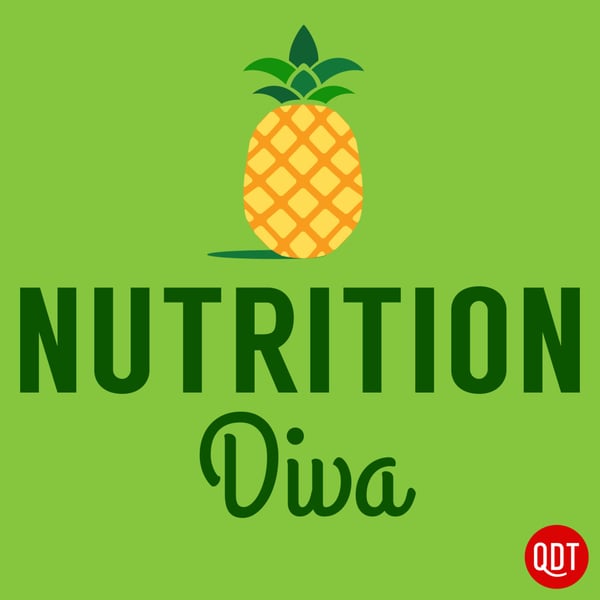How do vitamin-fortified foods fit into a healthy diet?
Nutrition Diva
Macmillan Holdings, LLC
4.3 • 1.7K Ratings
🗓️ 10 August 2022
⏱️ 12 minutes
🧾️ Download transcript
Summary
Transcript
Click on a timestamp to play from that location
| 0:00.0 | Hello and welcome to the Nutrition Diva podcast. I'm your host Monica Reinegel and today I want |
| 0:11.1 | to respond to a very thoughtful question sent in by a listener Ann on the nutritional value |
| 0:16.9 | of fortified foods. But before we get to that, I also wanted to take a moment to answer a question |
| 0:21.5 | that came in on the Nutrition Diva listener line. Hi Nutrition Diva. It seems that she recently |
| 0:28.7 | bought her husband a dehydrator for his birthday. And he has now dehydrated all of the produce in |
| 0:34.5 | our home. My question is, how does the nutritional value of dehydrated fruits and veggies compared |
| 0:39.7 | to the produce in its more natural form? Thank you. Okay, all forms of food processing, |
| 0:45.6 | including washing, involve some degree of nutrient loss. Even just sitting in the crisper drawer of |
| 0:51.9 | your refrigerator or on your counter, fruits and vegetables are going to lose some of their nutritional |
| 0:57.6 | value over time. Not all nutrients are equally affected, though. Water-soluble vitamins, |
| 1:03.6 | like vitamin C, tend to be among the more fragile ones. Fat-soluble vitamins, such as vitamin A, |
| 1:09.9 | are a bit sturdier, minerals like calcium and zinc, as well as macronutrients like fiber or protein |
| 1:17.3 | are even less affected by processing or cooking. Among the different forms of processing, |
| 1:22.7 | dehydrating and freezing generally preserve more nutrients than baking or boiling. They may |
| 1:29.5 | even retain more nutrients than, quote, unquote, fresh produce that's been sitting around for a while. |
| 1:35.6 | The thing is, no matter how you process your produce, there is still plenty of valuable |
| 1:40.9 | nutrition to be had from them. In fact, the recommendations for how many servings of fruits and |
| 1:45.5 | vegetables you should eat are based in part on the assumption that some of them will be cooked or |
| 1:51.2 | otherwise processed and will have suffered some nutrient losses. Dehydrating fruits and vegetables |
| 1:57.5 | can be a great way to keep fresh produce from spoiling before you can eat it. And for sure, |
| 2:03.5 | you're going to get more nutritional value from fruits and vegetables that you dehydrate versus those |
| 2:08.4 | that you end up composting. And listen, if you're using your dehydrator to make kale chips, |
... |
Please login to see the full transcript.
Disclaimer: The podcast and artwork embedded on this page are from Macmillan Holdings, LLC, and are the property of its owner and not affiliated with or endorsed by Tapesearch.
Generated transcripts are the property of Macmillan Holdings, LLC and are distributed freely under the Fair Use doctrine. Transcripts generated by Tapesearch are not guaranteed to be accurate.
Copyright © Tapesearch 2025.

